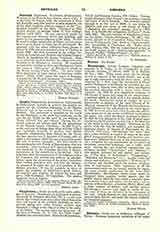

Rheinberger, JOSEPH GABRIEL, composer and organist, b. at Vaduz, in the Principality of Lichtenstein, Bavaria, March 17, 1839; d. at Munich, November 25, 1901. When seven years old, he already served as organist in his parish church, and at the age of eight composed a mass for three voices. After enjoying for a short time the instruction of Choirmaster Schmutzer in Feldkirch, he attended the conservatory at Munich from 1851 to 1854, and finished his musical education with a course under Franz Lachner. In 1859 he was appointed professor of the theory of music and organ at the conservatory, a position which he held until a few months before his death. Besides his duties as teacher he acted successively as organist at the court Church of St. Michael, conductor of the Munich Oratorio Society, and instructor of the solo artists at the royal opera. In 1867 he received the title of royal professor, and became inspector of the newly established royal school for music, now called the Royal Academy of Music. In 1877 he was promoted to the rank of royal court conductor, which position carried with it the direction of the music in the royal chapel. Honored by his prince with the title of nobility and accorded the honorary degree of Doctor of Philosophy by the Munich University, Rheinberger for more than forty years wielded, as teacher of many of the most gifted young musicians of Europe and America, perhaps more influence than any of his contemporaries. As a composer he was remarkable for his power of invention, masterful technique, and a noble, solid style. Among his two hundred compositions are oratorios (notably “Christoforus” and “Monfort”); two operas; cantatas for soli, chorus, and orchestra (“The Star of Bethlehem”, “Toggenburg”, “Klarchen auf Eberstein” etc.); smaller works for chorus and orchestra; symphonies (“Wallenstein”), overtures, and chamber music for various combinations of instruments. Most important of all his instrumental works are his twenty sonatas for organ, the most notable productions in this form since Mendelssohn. Rheinberger wrote many works to liturgical texts, namely, twelve masses (one for double chorus, three for four voices a cappella, three for women’s voices and organ, two for men’s voices, and one with orchestra), a requiem, Stabat Mater, and a large number of motets, and smaller pieces. Rheinberger’s masses rank high as works of art, but some of them are defective in the treatment of the text. Joseph Renner, Jr., has recently remedied most of these defects, and made the masses available for liturgical purposes.
JOSEPH OTTEN

